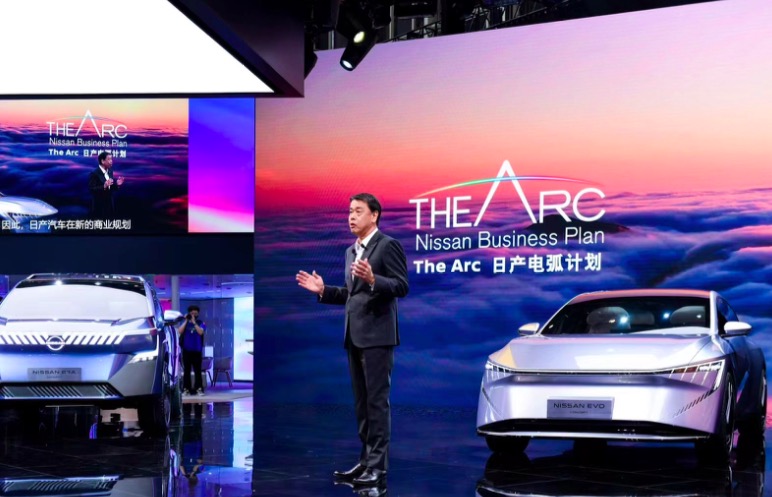Exclusive interview with Nissan CEO Makoto Uchida: Learning from China's speed and seeing China's export potential
- 27 August, 2024
When the person sitting on the roof of the car changed from the female Tesla owner to the "uncle in red", when the combined traffic of stars such as Jin Chen, Zhang Ruoyun, Ma Weidu and the "Young and Dangerous" group was still not as loud as the voices of "Mi fans", and when the high-spirited Chery and Great Wall invited thousands of international friends to "review", the 18th Beijing Auto Show was destined to become a carnival in the automotive industry.
Behind the noise, Japanese brands, which have long been considered behind the times, are also sending out signals that they are actively seeking change.
Nissan released its new brand proposition "Excitement by NI" at this auto show.

Previously, Nissan released a new strategic plan "The Arc". By 2026, Nissan plans to increase the proportion of global electrified models to 40%, and to 60% by 2030. In the core areas of intelligence and electrification, Nissan plans to launch the next generation of ProPILOT super-intelligent driving technology, enhanced NCM lithium-ion batteries, LFP batteries and all-solid-state batteries.
As the latest practice of intelligence and electrification, Nissan brought six concept cars to the conference. The Epoch concept car is designed for young users in urban and suburban scenarios; the Epic concept car is a pure electric SUV with autonomous driving functions on both urban roads and highways; the Era concept car is a plug-in hybrid SUV that will fully support the lifestyle in urban scenarios; and the Evo concept car can meet the entertainment needs of the whole family.
In addition, there are the Nissan Hyper Force pure electric concept car and the Nissan Hyper Punk pure electric concept car, each with its own characteristics in driving pleasure and emotional interaction.
Nissan CEO Makoto Uchida said in an interview with media including The Paper: "China's price war has made competition very fierce, but we also need to join the competition. These concept cars are designed based on local Chinese needs, and we will continue to leverage local speed to gain a competitive advantage."
Makoto Uchida said that the needs of Chinese users have changed a lot in recent years and are completely different from what they were five years ago. "In China, cars have become a part of life, and this trend has spread to other regions. What we need to do is to first pay attention to and clarify the needs of Chinese users," he said.
Ivan Espinosa, senior vice president of global product planning and global project management at Nissan Motor, further explained in an interview: "Two years ago, Chinese consumers did not have such a high demand for autonomous driving, but now it is different. China's speed has made us realize that we need to change our product development concept. We need to create a more personalized experience, such as enabling information from mobile devices to communicate with the car computer."
On the other hand, Chinese new forces have shortened the development cycle of a new car from 5-7 years for traditional automakers to 18 months, which is unimaginable for most overseas automakers. "Now many Nissan engineers are studying in China, hoping to catch up with the 'China speed' through new technologies," said Iesno.
In 2023, China will become the world's largest exporter, with about a quarter of its exports being new energy vehicles. Nissan has taken a fancy to the advantages of China's supply chain and the export potential of the Chinese market, and plans to use China as an export base for new energy vehicles starting in 2025, with an annual export volume of 100,000 vehicles.
In view of the fact that some countries are not friendly to cars from China, Masafumi Matsuyama, head of Nissan's Chinese investment department, said: "In fact, 80% of the world's markets can accept cars made in China."
Under this pattern, Nissan's strategy of "In China, for China" will take another step forward and become "In China, for China, to the world".










0 Comments